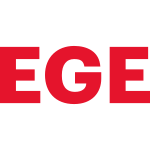Alors qu’un coup d’état vient de renverser le gouvernement de Tandja Mamadou au Niger, il est possible que la junte militaire remette en cause les intérêts des compagnies minières. Selon une étude menée par l’EGE, ce n’est pas Areva qui risque le plus, sinon les sociétés Chinoises et Canadiennes qui avaient bénéficié d’une relation étroite avec la famille de Tandja Mamadou.
former French colony in southwest Africa, is both one of the poorest countries, and paradoxically, the third Uranium producer in the world.
France’s nuclear flagship, Areva-Niger (ex-Cogema), had benefited from a 40 year strategic alliance for the extraction of uranium; that in exchange of diplomatic, military, and economic support from the French government.
Niger’s Tuareg insurgency (MNJ). Nevertheless, the rising prices of Uranium since the late 90’s, the government’s will to diversify their uranium contracts, and Tandja’s family recent ties with Chinese and Canadian mining firms are factors not to be ignored.
Tandja’s family and the Chinese “special relation”
Guy Duport, who were close to Tandja’s son, Ousmane Tandja, commercial counselor in Hong Kong’s Niger Embassy under Tandja’s regime.
Guy Duport’s Linked In public profile that Trendfield was the intermediary between Tandja’s government and the CNCP in the granting of the mining permits of the Azelik mines.
Cameco Corp.
Coup against Tandja: Who should lose the most?
one third of the extraction for the commercial use of Niger’s government.
military coup that was to oust him back in February, 2010 has certain legitimacy as Tandja’s family grew rich at the expenses of the people of Niger.
School of Economic Warfare portrays, it is not Areva who is losing the most with Niger’s most recent coup. As close ties with the Tandja family were fundamental in the obtaining of uranium exploitation permits of both Chinese and Canadian mining firms in Niger (ex. Trenfield Holdings), it is obvious that China and Canada will be anxiously watching further developments of Niger’s domestic politics.
School of Economic Warfare
A lire également :
- Areva sous pression
- La crise gazière : une chance pour Areva ?
- Chinafrique : la stratégie d’influence de Pekin sur l’Afrique


